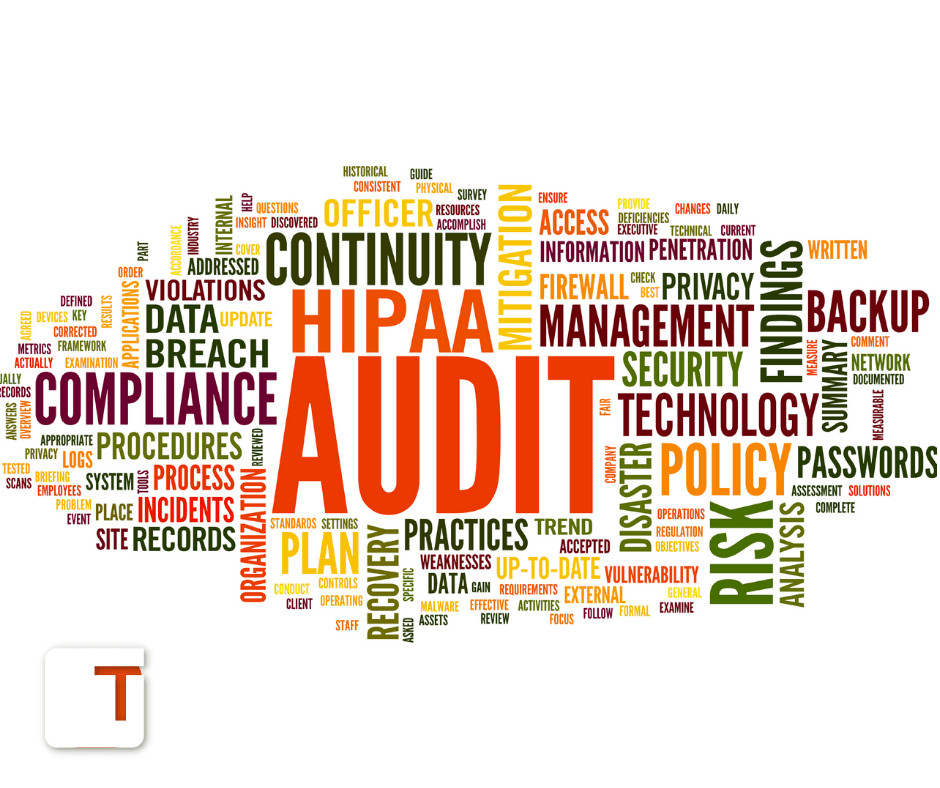Originally published January 2017 in Trojan Today.
HIPAA laws are in the news again. HHS has begun routine audits of groups with fewer than fifteen employees or contractors. In the past, the government only audited small groups after a complaint. Now, you can be audited even if you’ve done nothing wrong. If the auditor finds any violations of the law, you could face high fines.
For years, many smaller offices have figured their compliance basically began and ended with those annual notifications for patients. Now, with audits looming, dental practices need to be able to prove they comply with all aspects of the law.
HIPAA Compliance: Do and Document
Under HIPAA, it’s not enough to create policies and procedures for your practice. You must also document what you’ve done. Your documents need to cover:
- Appropriate Officers. Each practice needs designated privacy and security officers, if you use contractors for most of your technology. These may be the same person.
- Recent Policies and Procedures. Your practice should have all HIPAA–related policies and procedures in written form. These should be updated and checked against the law annually. A dusty binder from 2007 isn’t compliance, it’s neglect. You should also have annual update documents that detail any changes you’ve made or the reasons you chose not to make changes.
- Technology Risk Analysis Studies. Every piece of technology in the office that involves patient data should have an up-to-date risk analysis on file. This includes both software and hardware. If any piece of the system changes, you need a new risk analysis in place.
- Data Breach Mitigation Plans. Risk analysis tells you what can go wrong. Mitigation plans tell you what to do if something does go wrong and you have a security breach.
The more complete your documentation, the easier it will be to live through a HIPAA audit, coming out with a list of things to improve rather than a practice-destroying fine.
An Officer and a Document
Your first step in HIPAA compliance should be to appoint appropriate privacy and security officers. Your privacy officer is responsible for overseeing HIPAA-related issues in the practice. They should understand the ins and outs of the law, but also have a good knowledge of how your practice operates and how you handle records and record requests. A good privacy officer can:
- Write and distribute policies concerning patient privacy
- Educate other staff members about their duties under HIPAA
- Ensure that all patients have a current HIPAA disclosure form on file
- Answer questions from patients involving privacy concerns
- Receive and fulfill medical records requests
- Check all releases of information for HIPAA compliance
- Act as Security Officer in practices that use contractors for most technology
If a software program or piece of hardware is replaced, remove the old document and insert a risk assessment sheet for the new technology. Review and update your risk assessments each year, even if your technology doesn’t change.
Offices that outsource technology installation and maintenance should have their contractors conduct these assessments and provide reports. Get accurate information on how and when your contractors conducted these assessments, as well as any weaknesses they found. No technology is 100% secure. If your risk assessment is blank, it means you didn’t conduct a meaningful assessment.
Honored Mostly in the Breach
Finally, you need extensive documentation on what you plan to do when there is a data breach. Notice I said when, not if. In today’s information security climate, there will be breaches. You need to have written documentation describing how you will identify breaches, notify injured parties, and remediate your data storage systems after a breach.
If you have contractors in charge of your data security, make sure they can give you a detailed description of their actions in the wake of a data breach. “We’ve never had a breach” does not excuse you from having a plan in place, especially with all the recent, high-profile medical record thefts.
Ensuring proper compliance with HIPAA regulations may seem like a thankless, pointless, task for a small office. However, in a world where audits are going to become more common, extra attention to detail now can save you big trouble when the auditor visits.

Christine Taxin is the founder and president of Links2Success, a practice management consulting company in the dental and medical fields. With over 25 years of experience as a practice management professional, she now provides private practice consulting services and delivers continuing education seminars for dental and medical professionals.
FMI: www.links2success.biz or 914-303-6464
Read more from Christine Taxin:

